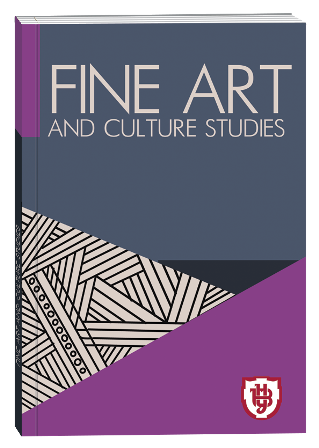JOHANNES RUKHABER’S PIANO HERITAGE IN THE CONTEXT OF THE EARLY ROMANTIC SALON STYLE
DOI:
https://doi.org/10.32782/facs-2024-5-17Keywords:
Johannes Rukhaber, salon music, performance traditions, brilliant style, instrumental miniatureAbstract
The purpose of the article is to reveal the significance of Johannes Rukhaber’s piano music within the context of the early Romantic salon style. The research methodology includes analytical, historical-cultural, and inductive methods. The scientific novelty lies in the systematic interpretation of Rukhaber’s activity as it pertains to his contributions to piano art. Conclusions. The creative work of Austrian composer and pianist Johannes Rukhaber holds a significant place in the history of early 19th-century piano art in Galicia. The article analyzes Rukhaber’s piano legacy within the framework of the early Romantic era, considering the leading pianistic trends of that time. His works demonstrate the characteristics of the brilliant style, which was considered central to piano music and performance in the first half of the 19th century. This style is also evident in Rukhaber’s instrumental miniatures, such as waltzes, mazurkas, polonaises, and others. These compositions became notable examples of salon music, a vital part of Galician musical life, fulfilling an important social role and serving as an educational tool that helped shape the cultural identity of the period. Thus, Rukhaber’s work not only integrates the stylistic elements of the era but also reflects broader European trends in piano music development. His legacy is crucial for understanding the role of piano music in that period and highlights the historical role of composers who, though perhaps remaining in the shadow of more famous figures, contributed significantly to the didactic and concert repertoire, enriched the cultural atmosphere, and fostered the development of local musical traditions and ideas.
References
Дітчук О.Р. Роль віденської фортепіанної школи у формуванні піаністичного мистецтва України (Галичина та українська діаспора п.п. ХХ століття): дис… канд. наук. Львів, 2009. 21 с.
Запорізька обласна бібліотека для юнацтва: К. Ліпінський: до 230-річчя від дня народження польського скрипаля, композитора, педагога. 2020р. URL:https://younglibzp.com.ua/karol-jozef-lipinskij-do-230-richchya-viddnya-narodzhennya-polskogo-skripalya-kompozitora-pedagoga/ (дата звернення 10.10.2024).
Жмуркевич З. Фортепіанні ансамблі Жана Рукгабера в контексті особливостей історико-культурного соціуму доби бідермаєра в Галичині ХІХ ст. Наукові збірки Львівської національної музичної академії ім. М.В. Лисенка. 2015. Вип. 34. С. 263.
Кашкадамова Н.Б. Історія фортепіанного мистецтва ХІХ ст. Тернопіль, 2006. С.: 11, 21, 251, 254.
Мазепа Т. Л. Соціокультурний феномен європейських музичних товариств ХІХ – початку ХХ століття на прикладі Галицького Музичного Товариства: монографія. Львів, 2017. С.: 177, 334.
Щербакова О., Щербаков Ю. Блискучий стиль у жанрі фортепіанного ансамблю: виконавська практика та композиторська творчість. Актуальні питання гуманітарних наук. 2022. Вип. 53 № 2. С. 130
Czerny Carl. Vollständige theoretisch-practische Pianoforte-Schule. Wien: Tobias Haslinger,1839. С. 117.
Hummel.J.N. Ausführliche theoretisch-practische Anweisung zum Piano-Forte-Spiel, vom ersten Elementar-Unterricht an bis zur vollkommensten Ausbildung. – Wien: bei Tobias Haslinger. 1828. С. 492.
Michalik E. Jan Ruckgaber – zapomniany kompozytor. Warszawa, 2016. С. 9.
Walker Alan. Franz Liszt: The virtuoso Years, 1811–1847. Cornell University Press,1983. С. 58.







